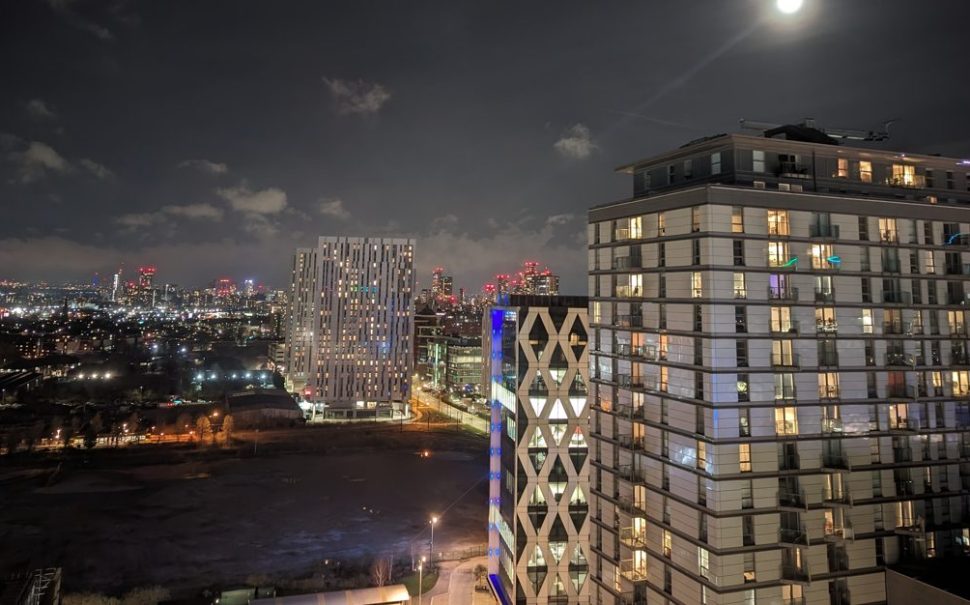Private tenants in Manchester are being impacted by private rent rises more than in any other city in the North West, new figures reveal.
Rental prices in Manchester rose by 12.4% in just one year, from an average of £1,004 in 2022 to £1,128 in 2023, according to data from the Office for National Statistics (ONS).
The increased cost accounted for more than 43% of renters’ household disposable income – a rise of 4.7% – according to the ONS data.
This sits far higher than the national average increase in monthly private rent as a percentage of household disposable income, which was 2.3% – Manchester saw the highest rise outside London.
Manchester also had higher rent increases than nearby northern cities such as Liverpool, which has seen average monthly rent increase by 12.1%, from £674 in 2022 to £756 in 2023.
Manchester tenants forked out an average estimated increase of £124 per month in 2023, with rent rises affecting an estimated 13% of all households in Manchester.
As part of the report, the ONS assigned each area in England and Wales an ‘exposure score’ relative to other local authorities, with seven being the highest score and one the lowest, based on the proportion of households affected by rising costs and how much the increased cost detracted from household disposable income.
These measures give Manchester a score of seven out of seven – the highest possible outcome.
John Ryan, service lead at housing charity Shelter, said: “Private renting in Manchester has reached boiling point.
“Every day in our services we hear from families who are scrambling to keep a roof over their heads, after being handed yet another rent increase they simply cannot afford.
”The only lasting solution to the housing emergency in Manchester is for all political parties to commit to building truly affordable social homes with rents tied to local incomes.”
Shelter is calling on the government to “overhaul the Renters (Reform) Bill so that it genuinely delivers safety and security for renters” alongside scrapping Section 21 evictions “to allow renters to challenge unfair rent increases without fear of being hit with a retaliatory eviction”.
Figures rose across all ten Greater Manchester boroughs between 2022 and 2023.
Salford saw an estimated 11% of households affected with an average estimated increase of 11.0%, rising from £849 to £954.
This gave the area an ‘exposure score’ of six out of seven and private renters in Salford spent more than 35% of their average disposable income on housing costs.
Tom Ghirardi, 30, originally from London, has lived in a one-bedroom flat in Salford Quays for around three years.
He has seen the rent steadily increase since he first moved in, and is currently spending approximately 40% of his income on rent.
He said: “My rent increases haven’t been quite as severe as some other people’s, but combined with the cost-of-living crisis, it has taken a big chunk out of my disposable income.
“I don’t have anyone to split the rent and bills with so any increases to my outgoings have a big impact on my life.
“I am not able to socialise as much as I used to and have had to give up hobbies I used to do due to finances.
“Saving for my future is incredibly difficult; like many people I struggle to see a way of getting onto the property ladder myself.”
Harry Jones, 27, who lives in Salford, mirrored this experience.
The Manchester city centre worker said: “I’m now at an age where I want my own space. I don’t want to have to carry on living with friends just because I can’t afford to live by myself.
“My flatmate is moving out soon and even studio apartments are going for around £1,000 per month.
“I could move to the outskirts, maybe Stockport or Prestwich, but even prices there aren’t much lower, and with the added cost of commuting it wouldn’t actually save me any money.
“I’ve opted to stay in the two-bedroom apartment we’re currently in because the location is good and I’m really not going to get anything cheaper nearby.
“About 45% of my monthly salary will go on rent and then I have bills on top of that.
“I have reduced my socialising to help save money. My friends and I are more likely to go to each other’s places for food, or to watch TV together than go out.”
The problem affects not just Greater Manchester but the whole North West region, which has seen a higher average increase in monthly private rents than any other region in England and Wales, rising by 12.4% between 2022 and 2023.
Rosi Avis, Partnership and Communication Lead at Citizens Advice Manchester, said: “We are seeing rising numbers of people in the private rented sector coming to us worried about rent increases, levels of disrepair and facing Section 21 evictions.
“It is clear that the issues facing private renters have never been more stark, and it’s therefore vital to strengthen their rights and protections through the Renters (Reform) Bill.”
A Section 21 notice – also known as a ‘no fault eviction’ – allows a landlord to evict a tenant without giving a reason by providing them with two months’ notice once their fixed term contract has come to an end.
Andy Burnham, the newly re-elected Mayor of Greater Manchester, has shared his ambition to end the housing crisis in Greater Manchester within a decade and to imminently open the new GM Good Landlord Charter to applications, setting out standards for private rental properties and supporting landlords to meet them.
Speaking at the election declaration on 4 May, Burnham said: “My new plea to Westminster is to give us the powers to free ourselves from the grip of the housing crisis.”

According to Propertymark – the UK’s leading professional body for property agents – 72% of landlords are worried about the abolition of Section 21, 69% of landlords are anxious about the end of fixed term tenancies and 62% of landlords are concerned about rent review clauses being removed.
Propertymark CEO Nathan Emerson told MM: “The issue we’ve got at the moment isn’t going away in the short term.
“There isn’t enough social housing to deal with the demand, leading to a higher reliance on the private rented sector, which is where a lot of people end up.
“For those who own the rental properties, it’s not cheap because of maintenance and everything else that has to be done fundamentally to keep the home in good enough condition for somebody [tenants] to live in – it’s getting more expensive for everyone involved.
“A lot of landlords only have one to three properties – they’re not people with multi-millions of pounds to spare like everybody thinks.
“Many are having to subsidise repairs to the properties out of their own earnings and income, not necessarily based on the margins that the properties create in the first place.”
Emerson was also critical of the idea of rent caps: “I don’t know of anywhere that rent caps have ever worked.
“It’s a great short term argument and a great vote winner but it doesn’t deal with the overall problem and it continues to grow. Rent caps are a very short-term brutal wrecking ball.
“What ends up happening is that people don’t invest in properties like they would have done before.”
Renter Tom adds: “Rents [in Manchester] are still cheaper than my hometown of London but they only seem to be going up and the cost of everyday living in Manchester is no different than the capital now.
“If it continues to rise I would have no choice but to look further out.”
Images: Lisa Valentine




